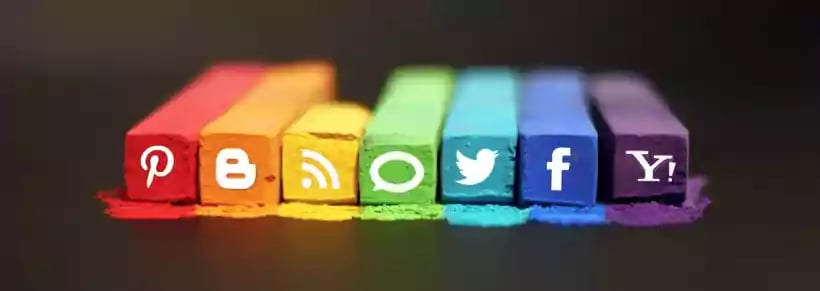
Digital marketing has really only emerged as a field over the past decade. The massive increase in the number of personal devices and their widespread use means brand marketers have many more ways of communicating directly with their consumers or customers. For this reason, it's no surprise that branding concepts should be applied to use of digital media and technology to develop brands through interactions with consumers on the digital devices they're increasingly using.
A Brave New World
Digital branding has evolved with the explosion of social media and boom of online businesses. Simply put, digital branding is ramping up a business’ brand and image by specifically targeting online users or customers. Earlier, digital branding was limited to only emails and websites. Today, it has come a long way. The digital world is vast and growing. Today’s customers are getting younger, more tech savvy, and informed.
Selling a product to consumers who are smarter than ever before is tough, challenging, and requires a higher level of creativity. Videos, apps, social media, and hundreds of other online tools ensure that a brand can have a solid presence online as well as offline. The availability of data and measurement tools makes it much easier, and ironically also more challenging, to craft a digital branding strategy.
Another difference from traditional branding is that today, brands themselves are digital. Many brands exist only online. Consider all the e-commerce websites out there, as an example, or the app developers. Many of these brands are valued in billions. So, clearly digital marketing works. Like traditional marketing, digital marketing needs to understand the needs of the customer, and building relationships and establishing them to retain the loyal customer is even more critical.
As the folks over at Adweek like to say, “Digital media haven't just revolutionized our world—they've taken over our lives”.
5 digital marketing trends that you can expect to see more of in 2016:
- Cyber Security – After experiencing cyber security attacks and stolen data in virtually every organization, from banks to the White House to the military, data piracy will become a major concern for non-Millennials, who inherently trust mobile-first, as new collaborative platforms such as e-healthcare records, accounting online service providers, and other Software-As-Service companies will be trusted with your utmost secrets. Trust will become a branding issue – not just a cyber security issue.
- More Facebook Video – YouTube’s video app has had the second most unique visitors year over year with only Facebook ranking higher. With YouTube acting as the undisputed king of online video and Facebook beefing up its own video platform, 2016 is poised for brands ready to commit to this mobile video marketing trend.
- The Five Second Rule – Analytics Research shows that when it comes to mobile video advertising, if you don’t catch the attention of the viewer in the first 5 seconds, you can forget about it as engagement drops dramatically. Whether it’s humor, drama, or shock value – the premium for higher results is what happens in the first five seconds.
- Increased Marketing Automation – As marketing automation platforms mature and collect big data, marketers will struggle to make data into actionable information to make intelligent decisions. The platforms are not the solution; they are the tool to make better decisions for both demand generation and customer experience.
- Product Reviews – Public trust has dramatically eroded in the authenticity of product promotions versus genuine reviews. That struggle will be accentuated, as review sites will face the issue of verifying the authenticity of the reviews. Until now, they had little to no consequences. However, the threat of litigation will force them to do something, and the pressure to generate advertising revenue resulting in more paid sponsorship and reviews.